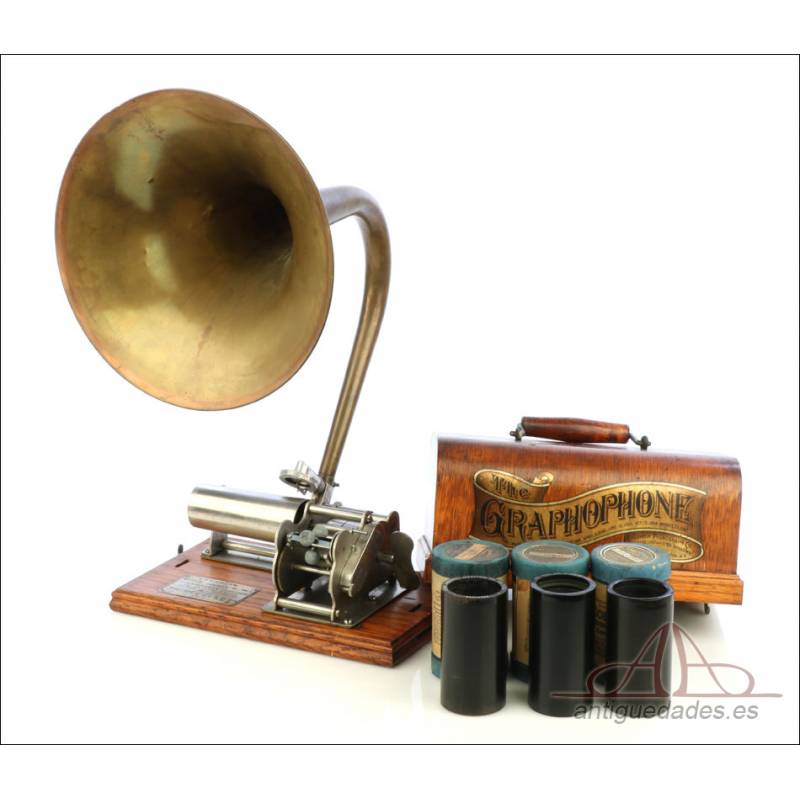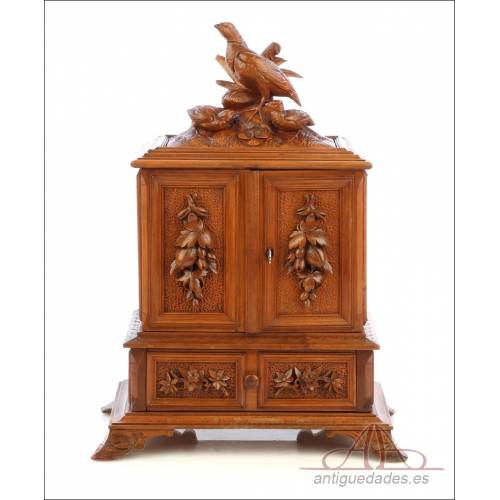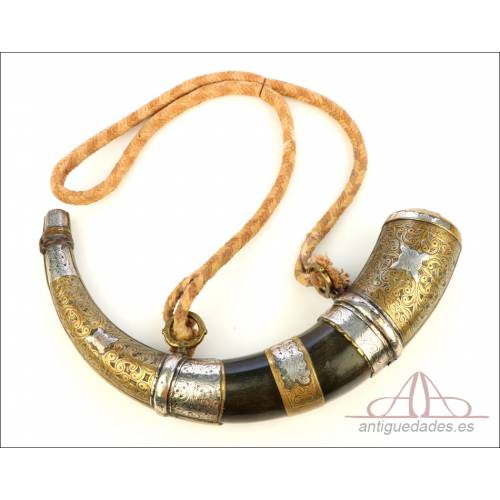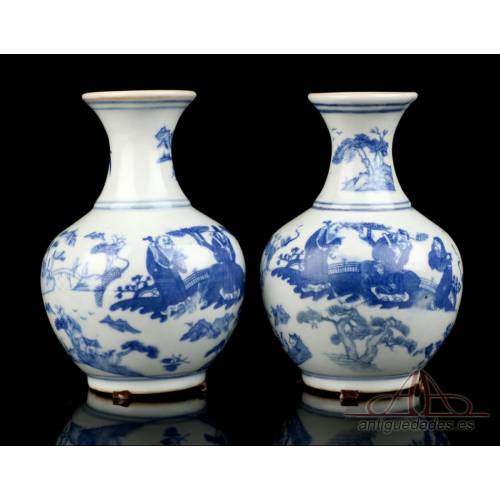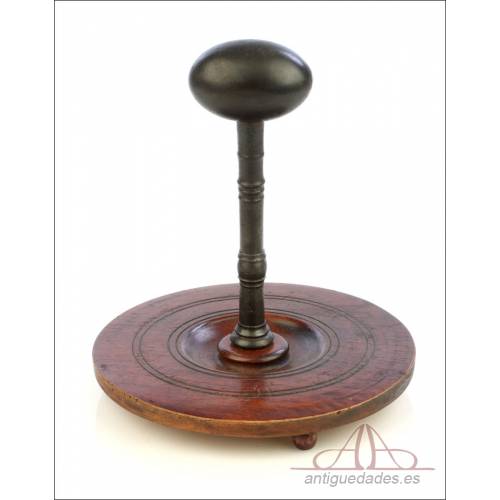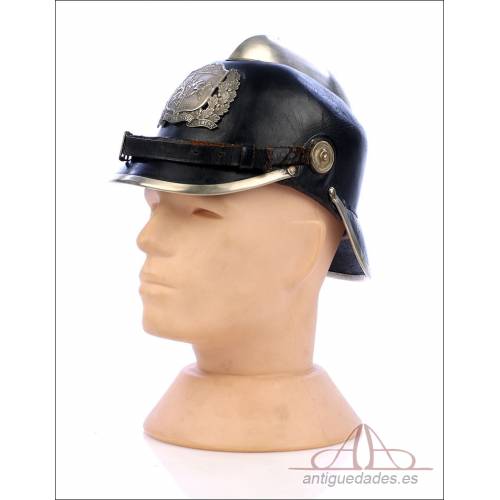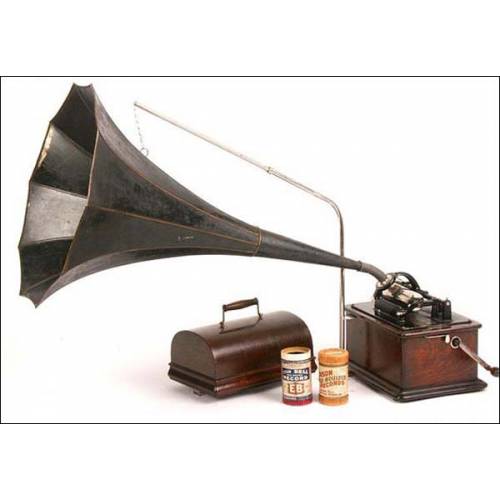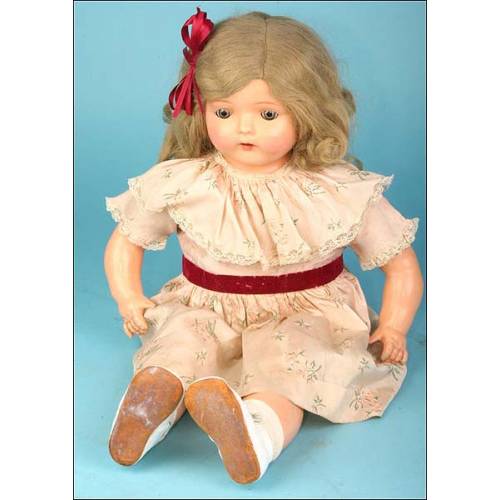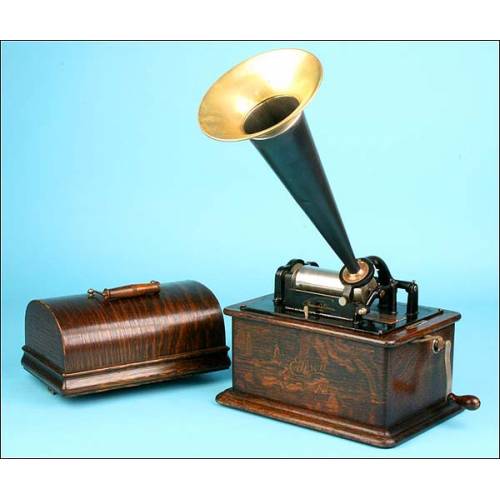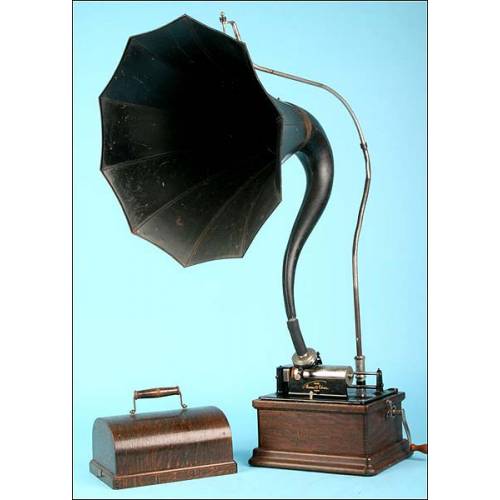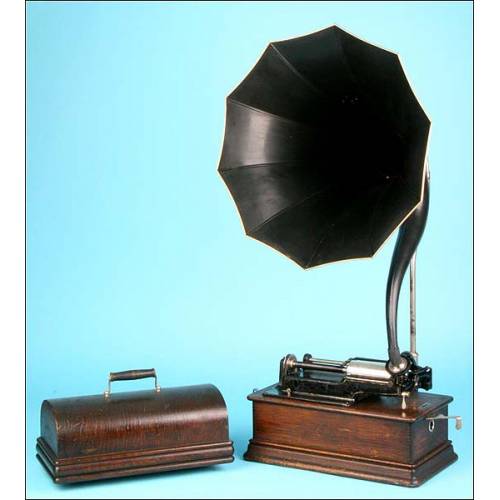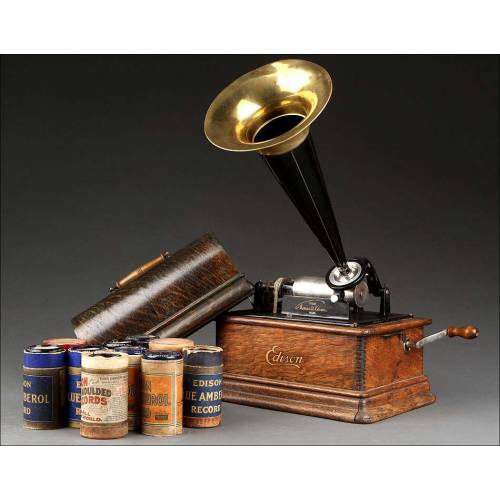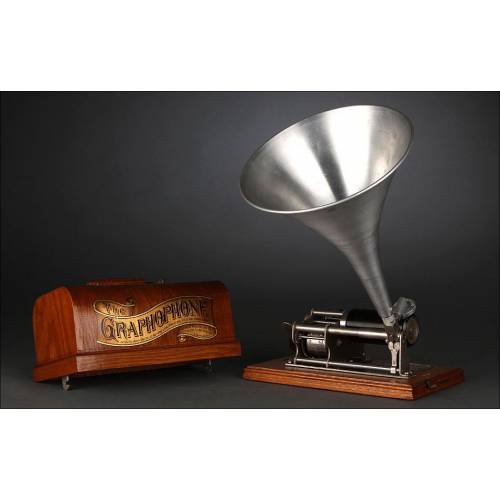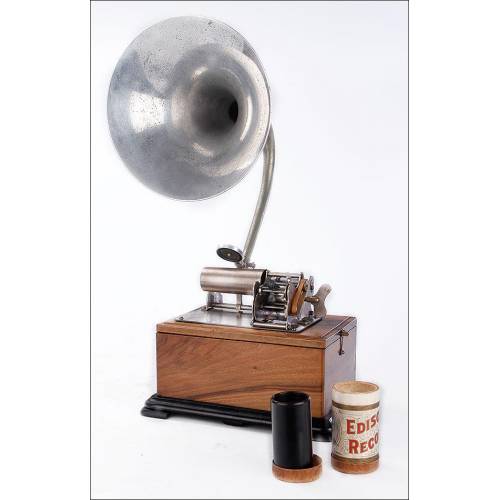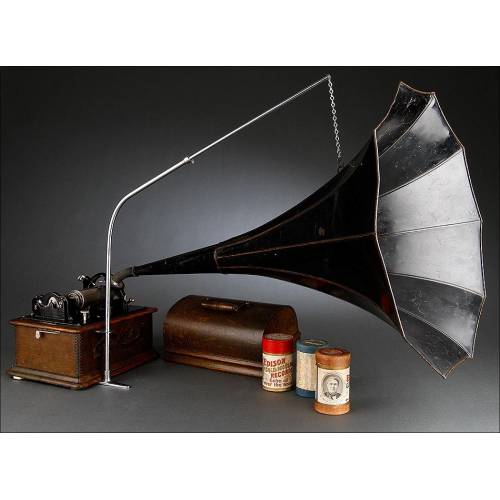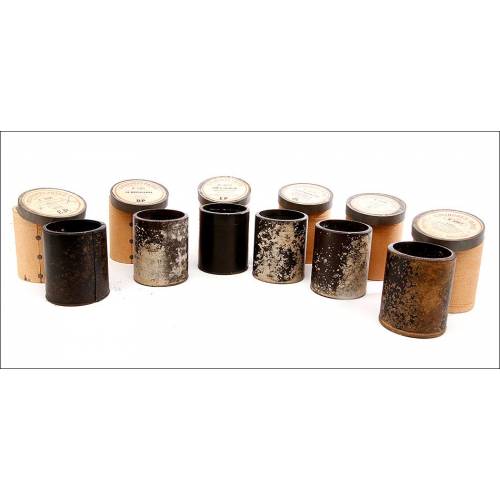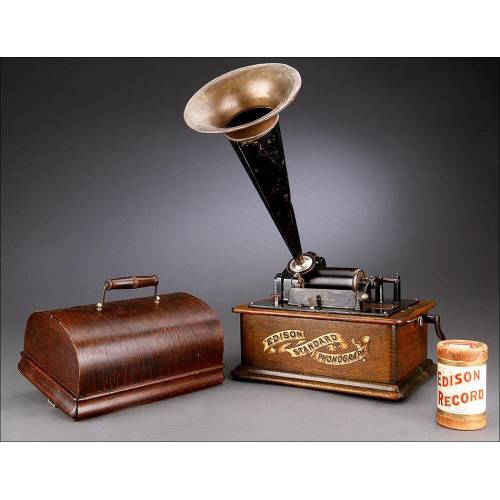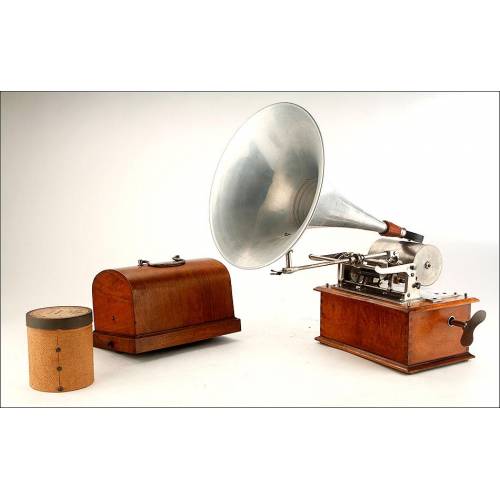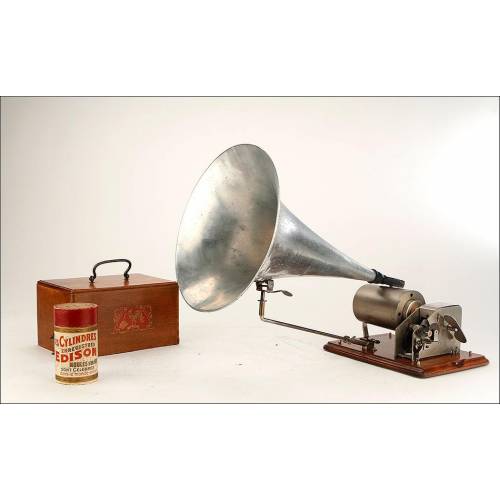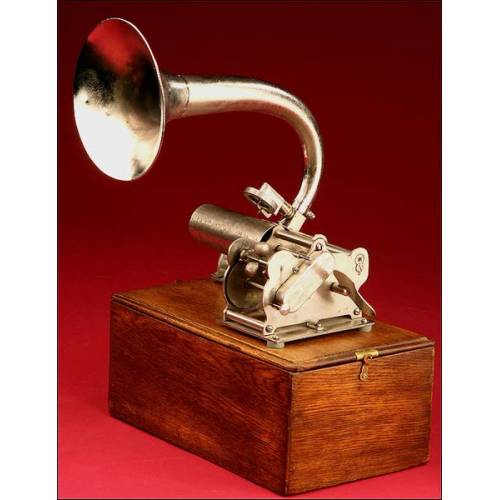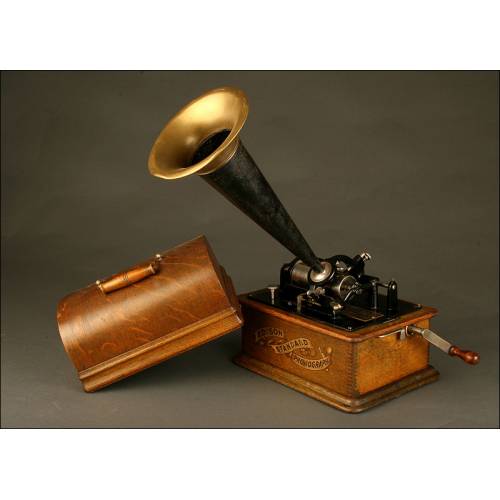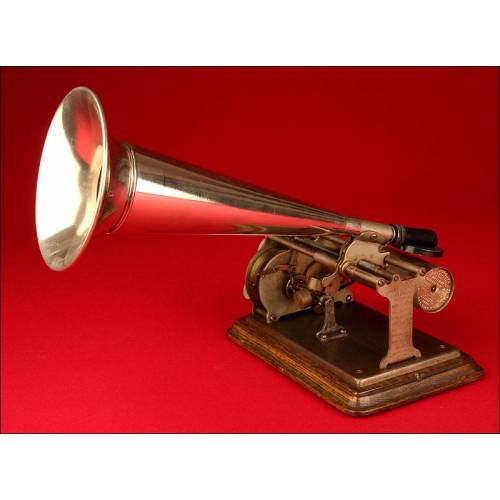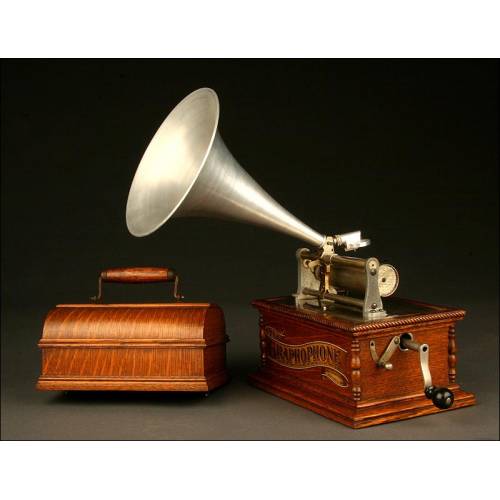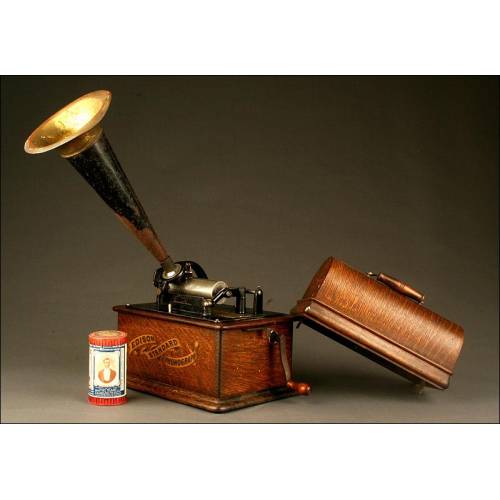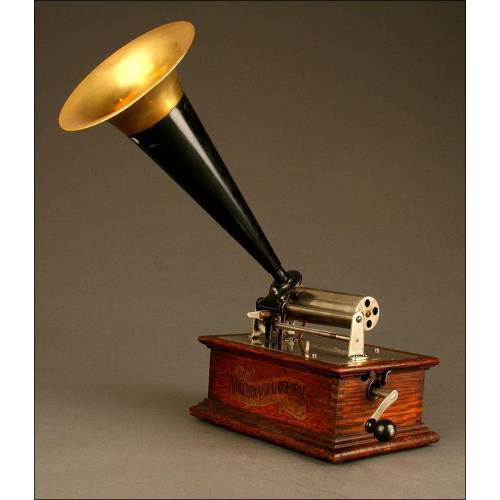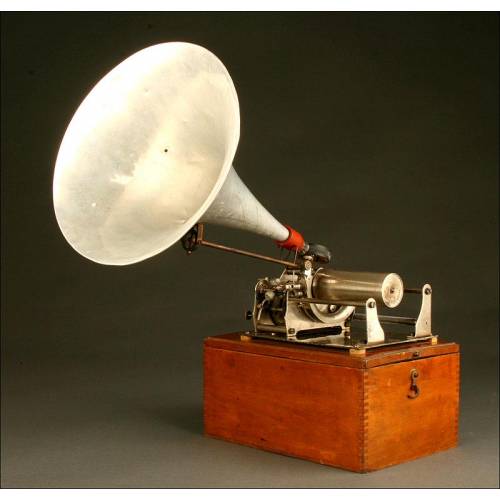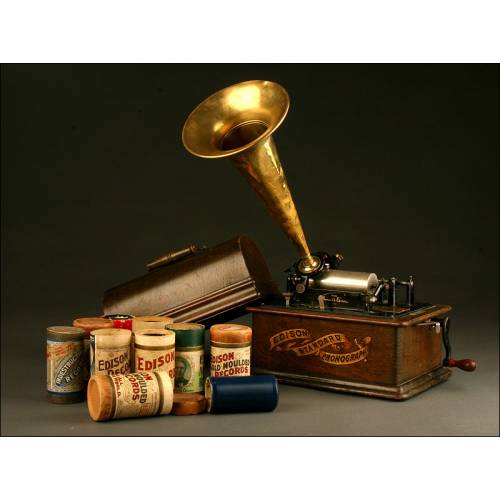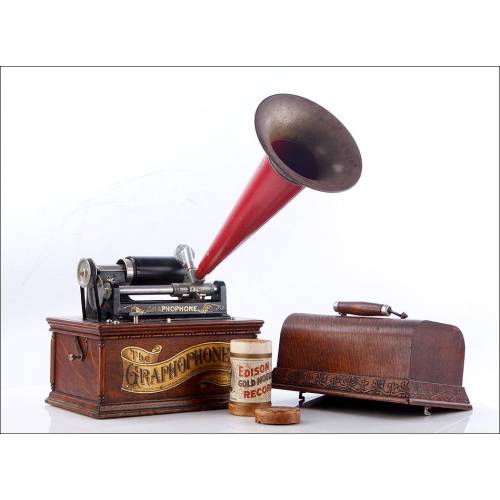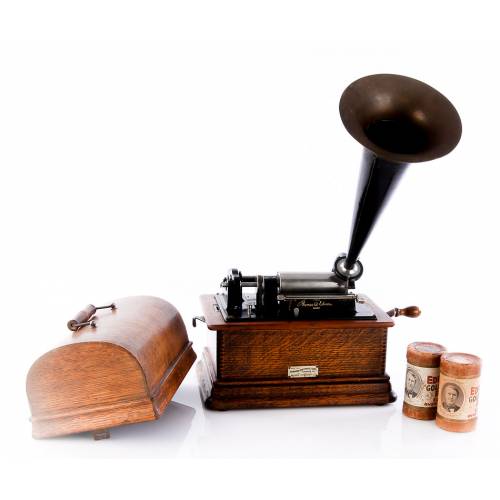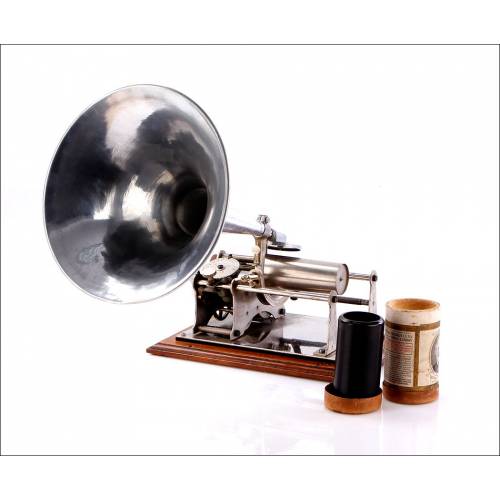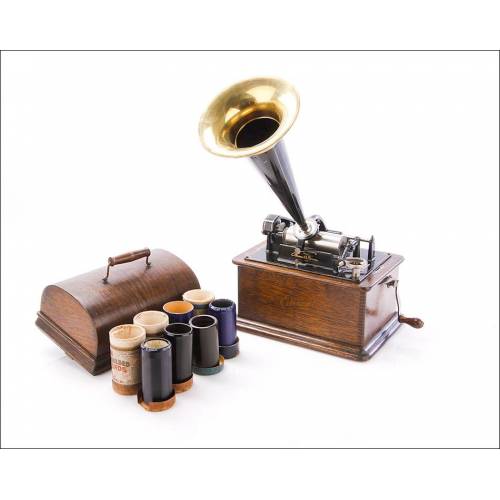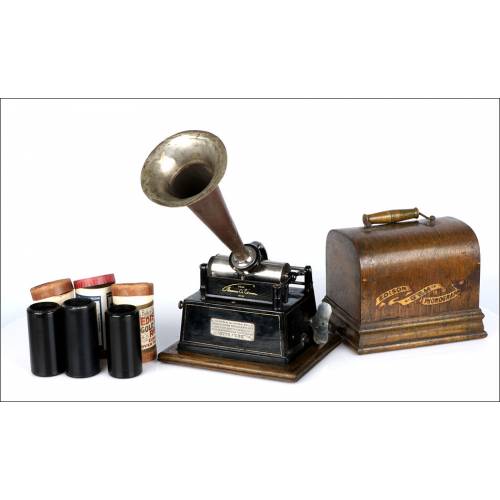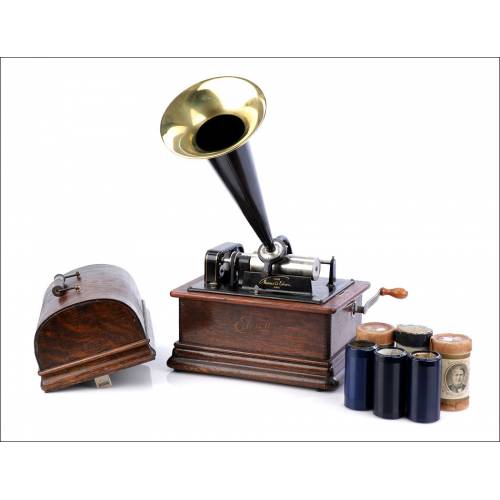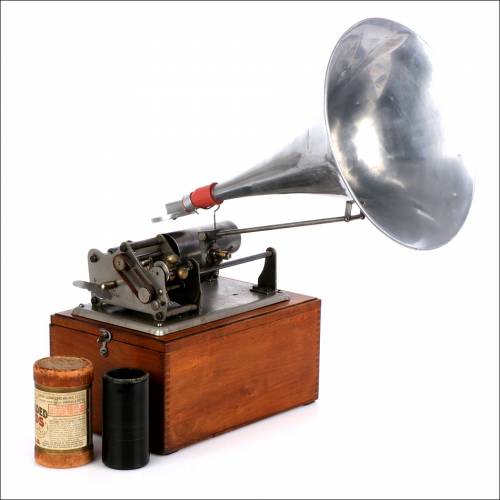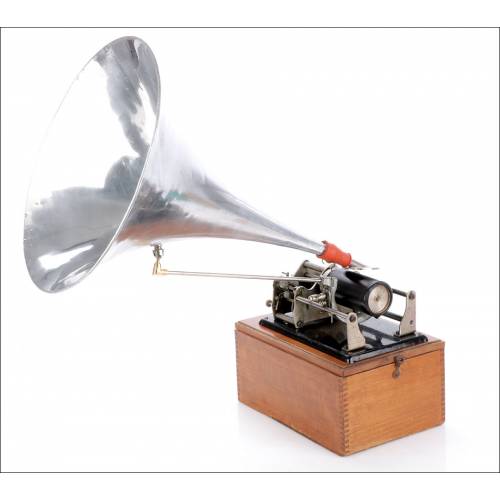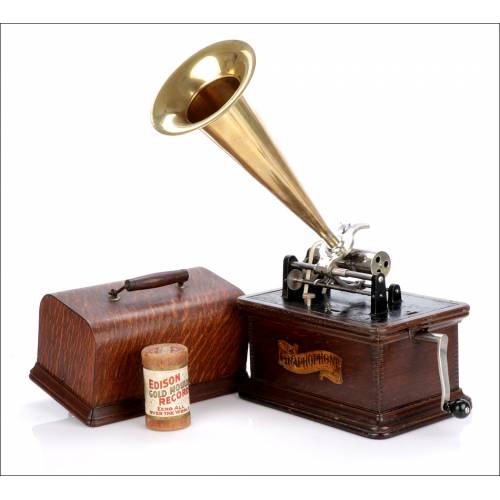D-130
Antique Columbia Phonograph Model B. USA, Circa 1900
Wonderful antique Columbia B phonograph. Gorgeous brass swan neck horn. In perfect working order
Sold!
Antique beautiful Columbia phonograph model B, made in USA circa 1900 and in excellent condition. This outstanding device has survived to our days with all its original component parts and pieces, even the reproducer (an extremely rare fact). The phonograph mounts a fine swan neck horn with a very attractive and unusual design. It works perfectly and can play old-time cylinders in order to enjoy its nostalgic sound. The item is delivered with three authentic Columbia cylinders in perfect condition. They come in their original packaging; the lovely ancient labels show the companys name, COLUMBIA PHONOGRAPH COMPANY, and an image of a woman dress with a stars-and-stripes dress. The phonograph stands on a sturdy solid-oak wooden base, finely preserved and with the original transparent finish. Attached to the base there is a rectangular metal plate with the companys name and address. There is one more plate, square-shaped in this occasion, with the inscription THE GRAPHOPHONE, the model (TYPE B) and the serial number 103569. The mechanism is entirely made of silver metal and so is the reproducer. The only component part that differs from the rest is the marvelous horn, made of brass and in good condition too. The phonograph also preserves the original oak wooden cover, with the gorgeous brand logo in an almost flawless condition. This superb antique Columbia phonograph model B will shine in a great music room, a living room or an important collection. Dimensions: Base: Width: 11.8 in / 30 cm. Depth: 7.28 in / 18.5 cm. Height: 19.88 in / 50 cm. Horn: Mouths Diameter: 10.63 in / 27 cm.Columbia Gramophone Company History The Columbia Gramophone Company (first known as Columbia Phonograph Company) was one of the most important record companies of the world during the 20th century. It was also a pioneer in the manufacture and sale of phonographs and gramophones. In the beginning, in the 1880s they just sold phonographs in Washington; but in 1893 they merged with the American Graphophone Company and started producing phonograph cylinders. In the early 20th century a new competitor emerged: the Victor Talking Machine Company, specialized in the manufacture of phonograph cylinders. Columbia responded by producing both cylinders and records, though in a few years they eventually stopped making cylinders. In 1920 the introduction of radio broadcasting made the company success to decline; things were tough for Columbia until World War II, when it returned to prominence. In the late 1960s Columbia was renamed CBS Records and expanded rapidly. They created a new label, Epic, and in 1968 merged with the Sony Corporation. Together they launched the Compact Disc in 1982. Soon after Sony bought CBS Records; today, the label is still active as part of the Japanese corporation.

